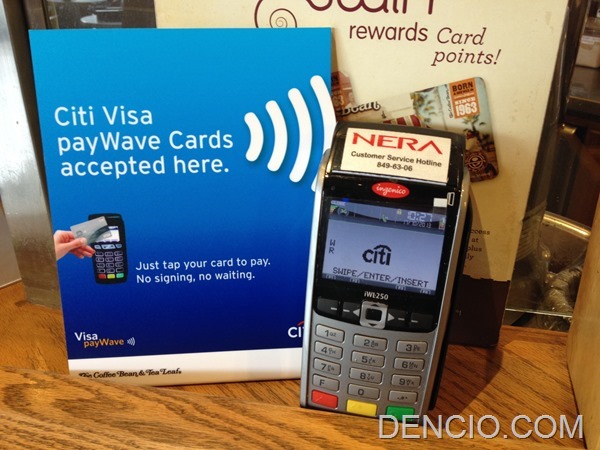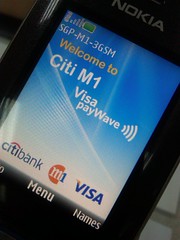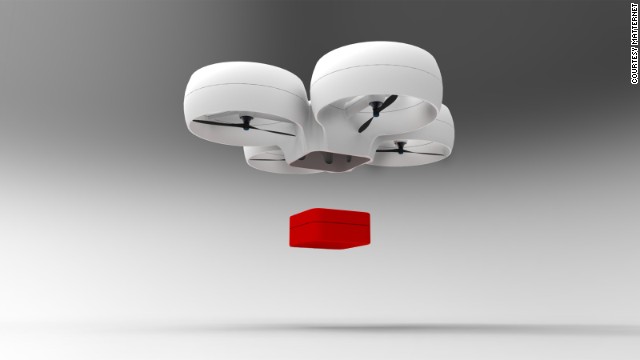Anna Mae Dela Cruz
S10
What pisses you off at the neighborhood? What do you suggest?
What pisses me most about my neighborhood is that I cannot walk around it safely. Indeed we residents seldom feel we can reside in it safely. Majority of us have experienced burglaries. My house was broken into a few years ago. My laptop and bag were taken. My beloved dog was dognapped a block away from my house several years ago. I was hysterical. Our neighbor's home was broken into two months ago. Several exotic and extremely expensive birds were stolen. The househelp of my brother-in-law's family (who lives several blocks away) was held up in the streets, her wallet stolen. The other night I heard a lady screaming for help in the street in front of our house, alerting the nearby tanods that a thief had stolen her bag. There are countless stories and the gist is the same: Ours is not a safe neighborhood. I love walking to nearby restaurants, the grocery, bookstore, pharmacy, or train station. I'd love to walk dogs or my nephew around, the way my dad used to take my sister and I for walk-a-thons and teach us about the different plants around our neighborhood. But I just can't do that anymore.
Barangay Laging Handa is flanked by Tomas Morato Avenue on one side, Timog Avenue on another, Roces Avenue on the side opposite to Timog. In other words it is surrounded by commercial areas and is a well-known restaurant district. The area was named after a group of boy scouts that died in a plane crash; each street is named after one scout, hence it is also called "the scout area". Many people mistake the barangay for being a village as it is home to upper middle class families, but it is not. It is not a gated community and we are constantly exposed to the crowds that frequent the surrounding establishments and to squatters in the adjacent barangay. These populous areas provide a place for miscreants to easily run to and hide in. In one frightful instance, a family that had been burglarized chased the thief all the way to a nearby squatters area, where the thief ran into the shanties and a group of thugs with weapons promptly came out of the shanties to scare off the pursuing individuals (it worked). There are no walls, fences, or security guards to get past.
What would I suggest? Not being a private plot of land, residents cannot have the neighborhood fenced in and gated though many are willing to pay for the construction and operating expenses. We've tried gating it off but were required to keep a few gates open at all times for the public to pass through. Legally, fencing in the village wouldn't fly. One could suggest that neighbors keep a close watch over neighbors' homes too, but residents in our community are not very sociable, sometimes even snooty and hostile. Realistically, acquaintance parties, team-building, and bonding wouldn't work. People don't care. There was one time when crime rates dropped, however. Barangay officials recruited, trained, and maintained a large team of tanods. Two tanods kept watch over each block 24/7. Streetsweepers were also hired to keep the neighborhood clean. Consequently, the barangay became a very clean and secure place to live. Walking around in became not only safe but enjoyable as well as the tanods and streetsweepers soon became familiar faces and consistently greeted residents cheerfully. Crime rates dropped to zero. What happened? Politics came into play, those in charge of the tanods and streetsweepers ran into trouble, the hires were no longer taken care of properly, and the community's security system quickly fell apart. That blissful period lasted all of a few months.
It is barangay election season again and now my brother-in-law is running for barangay captain, with security as his primary platform. The situation has simply become intolerable and I hope fervently that next Monday will see him into office. I'm confident he can do the job as he has been heavily involved in barangay affairs for decades and my sister has been kagawad for the past two terms, thus he knows the political and administrative problems that led to the demise of our security system and how to resolve it. Unfortunately the solution in this case is one that largely lies in the hands of our politicians. So what would I suggest? I suggest that every one attend their barangay miting de avance, listen to their candidates as they go door-to-door, listen to even those annoying campaign jingles, head over to their precincts next Monday, and care—if not enough to get involved or just be friendly with their neighbors, then at least care enough to vote and vote wisely. 3
On Monday, October 21, 2013 6:22 PM, Anna Mae Dela Cruz <am.delacruz@yahoo.com> wrote:
Anna Mae Dela Cruz
S10
Professionalism - New work methods and practices
While the rest of the world harps on about the strategic value of human resource management, HR enjoys no such status in the Philippines and I daresay this is due to the pitiful way it is practiced. I have never encountered a corporate HR department that behaved in a truly professional manner, or at the very least didn't irk me, save for McKinsey's. I could go on and on about how each HR function is so weakly executed, but for brevity's sake allow me to focus on the first: Recruitment. At least in my experience, HR departments often schedule tests and interviews a day beforehand, don't inform applicants how much time these will take, give tests and interviews that do not screen for relevant competencies or do not know what competencies to look for, don't stay abreast of what the best schools and courses are, offer uncreative compensation packages, do not know their company or their employees well enough to answer basic questions, move at a glacial pace, and themselves employ unimpressive contractual staff members who give lackluster interviews, presentations, and orientations. One wonders how they can screen for the best when the very meaning seems to escape them.
In many if not all my experiences, top management has openly dissed their HR departments and taken over my application process—administering the interviews, creating the offers, sometimes even monitoring the paperwork—themselves. They realize what these HR professionals don't seem to or at least can't seem to operationalize: People are an organization's most valuable resource, especially today. When you set appointments at short notice, you send the message that you don't respect your applicants' time and think they aren't currently employed or have nothing better to do. When you don't take the time to craft an effective screening process, you give the clue that one's prospective co-workers can't be that great. Essentially, HR departments in the Philippines treat their applicants as if these were all desperate job-seekers, and that is exactly what they'll get—the desperate kind. The best will not put up with such practices because they don't need to. Status quo practices are often not only ineffective, but discouraging and offensive.
The kind of professionalism I am urging for within the HR industry begins with the understanding that the recruitment process is a two-way process. An applicant sells himself to a company as much as a company must sell itself to that applicant. If a company is truly after the very best, it is in fact more the latter than the former. Interestingly, the HR practices that do impress me usually belong to small, innovative start-up companies while those that disgust me often belong to large, established corporations. Entrepreneurs take the time to study screening processes well and to search for the very best, perhaps because forming a lean but very mean team is especially critical at the start-up stage. HR practices, as with all other practices, are manifestations of core beliefs. The way one treats employees and applicants stem from one's understanding of the value of these professionals' and their work. Regardless of whether one can afford to take employees for granted, people are a crucial part of staying competitive in the world today. Much lip service has been paid to that, but practices today reveal that we remain slow on the uptake. I love HR work. In fact I'd like to be an HR professional, but the way it is practiced today lends it no prestige whatsoever and would make me, in truth, feel ashamed to be called one.
On Sunday, September 29, 2013 7:59 PM, Anna Mae Dela Cruz <am.delacruz@yahoo.com> wrote:
Anna Mae Dela Cruz
S10
New business idea
My research professor used to say: "There is nothing new under the sun. You just have to re-search it." I find it exceedingly difficult to come up with business ideas that are completely new (and so I found our discussion on the differentiating invention, innovation, creativity, and entrepreneurship rather timely). Once in a blue moon, we have a Steve Jobs who comes up with a PC or an iPod that transforms not only industries, but the way the people around the globe interact and come to know themselves and the world. But even those were not, in a sense, entirely new though they were indeed radical. They were old things modified to fulfill new purposes, combinations of existing things that had never been brought together or been applied to other areas. I have never heard of a "new" idea that came from absolutely nothing or had absolutely no precedent, but perhaps that is unnecessary. At the end of the day the value of an idea lies not in its "new-ness," but in the contribution it makes. Otherwise we spend our days producing novel but worthless things. Perhaps the right starting point is not to think of anything—just anything—that is new, but to think of a reality we want to create, and which perhaps cannot be fulfilled by what today exists.
There is one such reality I can think of. I have a doctor—a doctor whom I am convinced is the best general practitioner in the world. He's known me for nearly a decade now, and has seen me through my ugly duckling years, career decisions, family troubles, name it. He knows me well enough to know I am psychosomatic—that my body expresses what I refuse to express emotionally. To the outside world I handle stress pretty well; I'll be cool as cucumber throughout tough deadlines and private struggles. Then here I come, waltzing into his office with anything from a sore throat to a strange rash to—believe it or not—what looked like German measles and behaved like chicken pox but of course wasn't contagious as it was, like all the rest, stress-related. He's seen what can break me. He was the same doctor who diagnosed my condition a few years ago, saw me go to therapy for more than a year, and seen me recover and grow since. Hence, the first things he always asks me are: "How's your work? Family? Relationships?" Unlike most doctors, he spends at least half an hour just doing a patient history or asking me about everything that could have anything to do with my illness—diet, sleep patterns, work habits, leisure, etc. He knows I'm conservative about taking drugs, and so is he, so he starts me off easy on antibiotics and other medicines then monitors how my body responds before going all the way. He believes primary medicine is about building a good lifestyle, so at times he'll simply insist on more sleep or less worrying, and he knows I won't press him for a magic pill. He'll remind me to let him know how things are going in a few days, but often he texts or calls before I even get to. He'll ask how I am, adjust my medication if necessary, then start off my day with a word of fatherly advice. He always, always takes my calls—or calls back immediately after his meetings. He takes such good care of me you'd think I was some sickly, fragile little thing when in fact I've never been hospitalized in my entire life. There are never any worries about professional fees, billable hours, or too much following-up. It is a professional relationship that is completely unencumbered by business matters—and both he and I are better for it.
That will always be more the exception than the rule if our primary healthcare system stays the way it is. In gist, the idea is a community practice of doctors delivering the best primary and outpatient care possible, at a low cost. Such services do not yet exist in commercial quantities, only in cases where personal and pre-existing relationships belie the doctor-patient relationship—for example, when the doctor is a college director, mentor, and second father to his patient and does not rely on medical practice for his income. It will require a complete overhaul, transforming the way marketing, operations, finance, human resources, etc is done in healthcare. If I had to choose the key areas, I'd say we have to change the way health is financed and to change medical culture (which in the Philippines is an ugly thing). It's a lot of old things combined—payment schemes (including the case rates you asked me about before), human resource strategies, change management tactics, etc that have long been used in other industries but haven't been applied to healthcare. The impact will be tremendous. I could not possibly outline the details of this new idea in three paragraphs. No less than a strategic management paper could do that. I also probably shouldn't share the details of a proposal my team already made for global funding, or for which a local company is recruiting us for. Let me say only this: Innovation and entrepreneurship are not really about thinking of what new things we can come up with, but about what new value we can or should offer, and what new things must take place in order to bring it about. It starts with a vision—a vision of a doctor who is a true partner in health, who knows his patient inside out, offers her the utmost care and attention, and doesn't have to charge an arm and a leg to give it. It's really quite simple: I wish everyone had that kind of doctor.







